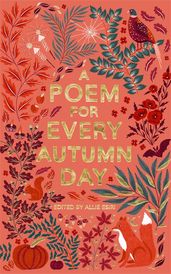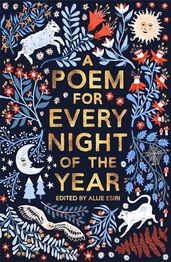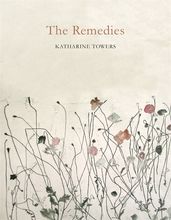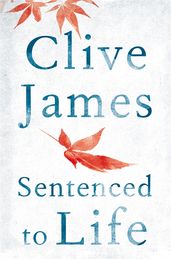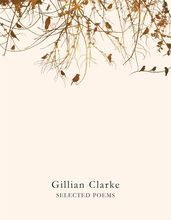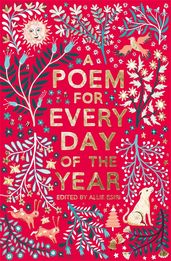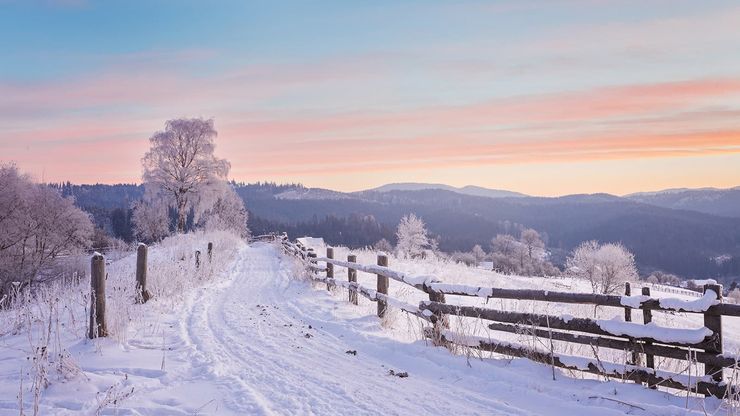Twelve autumn poems
A selection of our favourite poems on autumn, the ‘season of mists and mellow fruitfulness'.

With leaves turning golden, nights drawing in and fires being lit, autumn is the perfect time to settle down in a comfy chair with some poetry for company. Here is a selection of our favourite poems about what John Keats called the ‘season of mists and mellow fruitfulness', including autumnal poems by classic and contemporary poets, including Robert Frost, Emily Brontë and Gillian Clarke.
Find more brilliant poetry in our edit of the best poetry books.
When You Are Old
William Butler Yeats
When you are old and grey and full of sleep,
And nodding by the fire, take down this book,
And slowly read, and dream of the soft look
Your eyes had once, and of their shadows deep;
How many loved your moments of glad grace,
And loved your beauty with love false or true,
But one man loved the pilgrim soul in you,
And loved the sorrows of your changing face;
And bending down beside the glowing bars,
Murmur, a little sadly, how Love fled
And paced upon the mountains overhead
And hid his face amid a crowd of stars.
Taken from:
A Poem for Every Autumn Day
by Allie Esiri
The verses in this beautiful collection will transport you to vibrant autumnal scenes, from harvest festival to Remembrance Day. Each poem has a link to the date on which they appear, with verses from poets such as Robert Louis Stevenson, John Betjeman, Amy Lowell, Paul Laurence Dunbar, William Shakespeare and Christina Rossetti. The poems are selected from Allie Esiri’s bestselling poetry anthologies A Poem for Every Day of the Year and A Poem for Every Night of the Year.
Tobias Menzies reads 'When You Are Old' in our exclusive video:
This Is Just To Say
William Carlos Williams
I have eaten
the plums
that were in
the icebox
and which
you were probably
saving
for breakfast
Forgive me
they were delicious
so sweet
and so cold
Taken from A Poem for Every Autumn Day
Watch Helena Bonham Carter read 'This Is Just To Say':
Fall, Leaves, Fall
Emily Brontë
Fall, leaves, fall; die, flowers, away;
Lengthen night and shorten day;
Every leaf speaks bliss to me
Fluttering from the autumn tree.
I shall smile when wreaths of snow
Blossom where the rose should grow;
I shall sing when night’s decay
Ushers in a drearier day.
Taken from:
A Poem for Every Night of the Year
by Allie Esiri
Perfect for reading aloud and sharing with all the family, this is a magnificent collection of 366 poems compiled by Allie Esiri, one for every night of the year. It contains a full spectrum of poetry from familiar favourites to exciting contemporary voices. Alfred, Lord Tennyson, W. B. Yeats, A. A. Milne and Christina Rossetti sit alongside Roger McGough, Carol Ann Duffy and Benjamin Zephaniah.
Autumn
John Clare
I love the fitfull gusts that shakes
The casement all the day
And from the mossy elm tree takes
The faded leaf away
Twirling it by the window-pane
With thousand others down the lane
I love to see the shaking twig
Dance till the shut of eve
The sparrow on the cottage rig
Whose chirp would make believe
That spring was just now flirting by
In summers lap with flowers to lie
I love to see the cottage smoke
Curl upwards through the naked trees
The pigeons nestled round the coat
On dull November days like these
The cock upon the dung-hill crowing
The mill sails on the heath a-going
The feather from the ravens breast
Falls on the stubble lea
The acorns near the old crows nest
Fall pattering down the tree
The grunting pigs that wait for all
Scramble and hurry where they fall
Taken from:
Read Me 2: A Poem For Every Day of the Year
by Gaby Morgan
This beautiful collection containsa poem for every day of the year from the very best classic and modern poets. From poets including W. H. Auden, William Blake, Emily Dickinson, Carol Ann Duffy, Seamus Heaney, Dylan Thomas, W. B. Yeats, Lewis Carroll, Emily Dickinson, Roald Dahl, Charles Causley, Eleanor Farjeon, Philip Larkin and many more.
Whim Wood
Katherine Towers
into the coppery halls
of beech and intricate oak
to be close to the trees
as they whisper together
let fall their leaves,
and we die for the winter
Taken from:
The Remedies
by Katharine Towers
Katharine Towers' second collection explores the fragility of our relationship with the natural world. The Remedies is a lyric, unforgettable collection which shows Towers emerging as a major poetic talent
To Autumn
John Keats
Season of mists and mellow fruitfulness,
Close bosom-friend of the maturing sun;
Conspiring with him how to load and bless
With fruit the vines that round the thatch-eves run;
To bend with apples the moss'd cottage-trees,
And fill all fruit with ripeness to the core;
To swell the gourd, and plump the hazel shells
With a sweet kernel; to set budding more,
And still more, later flowers for the bees,
Until they think warm days will never cease,
For summer has o'er-brimm'd their clammy cells.
Who hath not seen thee oft amid thy store?
Sometimes whoever seeks abroad may find
Thee sitting careless on a granary floor,
Thy hair soft-lifted by the winnowing wind;
Or on a half-reap'd furrow sound asleep,
Drows'd with the fume of poppies, while thy hook
Spares the next swath and all its twined flowers:
And sometimes like a gleaner thou dost keep
Steady thy laden head across a brook;
Or by a cyder-press, with patient look,
Thou watchest the last oozings hours by hours.
Where are the songs of spring? Ay, Where are they?
Think not of them, thou hast thy music too,—
While barred clouds bloom the soft-dying day,
And touch the stubble-plains with rosy hue;
Then in a wailful choir the small gnats mourn
Among the river sallows, borne aloft
Or sinking as the light wind lives or dies;
And full-grown lambs loud bleat from hilly bourn;
Hedge-crickets sing; and now with treble soft
The red-breast whistles from a garden-croft;
And gathering swallows twitter in the skies.
Taken from A Poem for Every Night of the Year
Japanese Maple
Clive James
Your death, near now, is of an easy sort.
So slow a fading out brings no real pain.
Breath growing short
Is just uncomfortable. You feel the drain
Of energy, but thought and sight remain:
Enhanced, in fact. When did you ever see
So much sweet beauty as when fine rain falls
On that small tree
And saturates your brick back garden walls,
So many Amber Rooms and mirror halls?
Ever more lavish as the dusk descends
This glistening illuminates the air.
It never ends.
Whenever the rain comes it will be there,
Beyond my time, but now I take my share.
My daughter’s choice, the maple tree is new.
Come autumn and its leaves will turn to flame.
What I must do
Is live to see that. That will end the game
For me, though life continues all the same:
Filling the double doors to bathe my eyes,
A final flood of colours will live on
As my mind dies,
Burned by my vision of a world that shone
So brightly at the last, and then was gone.
Taken from:
Sentenced to Life
by Clive James
Again and again, James reminds us that he is not only a poet of effortless wit and lyric accomplishment: he is also an immensely wise one, who delights in using poetic form to bring a razor-sharp focus to his thought. Miraculously, these poems see James writing with his insight and energy not only undiminished but positively charged by his situation: Sentenced to Life represents a career high point from one of the greatest literary intelligences of the age.
Sonnet 73 (‘That time of year thou mayst in me behold’)
William Shakespeare
That time of year thou mayst in me behold
When yellow leaves, or none, or few, do hang
Upon those boughs which shake against the cold,
Bare ruin’d choirs where late the sweet birds sang.
In me thou seest the twilight of such day
As after sunset fadeth in the west,
Which by and by black night doth take away,
Death’s second self, that seals up all in rest.
In me thou seest the glowing of such fire
That on the ashes of his youth doth lie,
As the death-bed whereon it must expire,
Consum’d by that which it was nourished by.
This thou perceiv’st which makes thy love more strong,
To love that well which thou must leave ere long.
Taken from:
The Picador Book of Love Poems
by John Stammers
Whether you’re feeling tempted, seduced, tormented, or rejected, or falling in love, or out of love – this is the perfect book to inspire, console, and give a voice to every facet of our deepest and most complex human emotion.
Plums
Gillian Clarke
When their time comes they fall
without wind, without rain.
They seep through the trees’ muslin
in a slow fermentation.
Daily the low sun warms them
in a late love that is sweeter
than summer. In bed at night
we hear heartbeat of fruitfall.
The secretive slugs crawl home
to the burst honeys, are found
in the morning mouth on mouth,
inseparable.
We spread patchwork counterpanes
for a clean catch. Baskets fill,
never before such harvest,
such a hunters’ moon burning
the hawthorns, drunk on syrups
that are richer by night
when spiders pitch
tents in the wet grass.
This morning the red sun
is opening like a rose
on our white wall, prints there
the fishbone shadow of a fern.
The early blackbirds fly
guilty from a dawn haul
of fallen fruit. We too
breakfast on sweetnesses.
Soon plum trees will be bone,
grown delicate with frost’s
formalities. Their black
angles will tear the snow.
Taken from:
Selected Poems
by Gillian Clarke
Former National Poet of Wales, Clarke is one of the best-known names in UK poetry today, as well as one of the most popular poets on the school curriculum.
Over the past four decades her work has examined nature, womanhood, art, music, Welsh history – and always with the lyric and imagistic precision by which her poetry is instantly recognisable. Perhaps her greatest inspiration is the Welsh landscape and all the human stories that it hosts: as UK Poet Laureate Carol Ann Duffy has said, 'Gillian Clarke's outer and inner landscapes are the sources from which her poetry draws its strengths'.
Autumn Fires
Robert Louis Stevenson
In the other gardens
And all up in the vale,
From the autumn bonfires
See the smoke trail!
Pleasant summer over,
And all the summer flowers,
The red fire blazes,
The grey smoke towers.
Sing a song of seasons!
Something bright in all!
Flowers in the summer,
Fires in the fall!
Taken from:
A Poem for Every Day of the Year
by Allie Esiri
Reflecting the changing seasons and linking to events on key dates – funny for April Fool's Day, festive for Christmas – these poems are thoughtful, inspiring, humbling, informative, quiet, loud, small, epic, peaceful, energetic, upbeat, motivating, and empowering! The collection includes 366 poems, one for sharing on every day of the year.
Nothing Gold Can Stay
Robert Frost
Nature’s first green is gold,
Her hardest hue to hold.
Her early leaf’s a flower;
But only so an hour.
Then leaf subsides to leaf.
So Eden sank to grief,
So dawn goes down to day.
Nothing gold can stay.
Taken from A Poem for Every Night of the Year
Pleasant Sounds
John Clare
The rustling of leaves under the feet in woods and under
hedges;
The crumpling of cat-ice and snow down wood-rides,
narrow lanes and every street causeway;
Rustling through a wood or rather rushing, while the wind
� halloos in the oak-toop like thunder;
The rustle of birds' wings startled from their nests or flying
unseen into the bushes;
The whizzing of larger birds overhead in a wood, such as
crows, puddocks, buzzards;
The trample of robins and woodlarks on the brown leaves.
and the patter of squirrels on the green moss;
The fall of an acorn on the ground, the pattering of nuts on
the hazel branches as they fall from ripeness;
The flirt of the groundlark's wing from the stubbles –
how sweet such pictures on dewy mornings, when the
dew flashes from its brown feathers.
Taken from A Poem for Every Day of the Year
